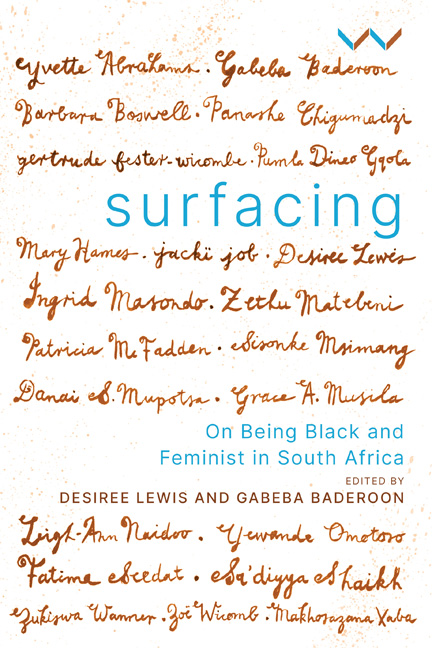Book contents
Chapter 4 - Teaching Black, Teaching Gender, Teaching Feminism
Published online by Cambridge University Press: 15 April 2021
Summary
As a schoolchild and then later as a university student, my experiences inside and outside the classroom influenced my approach to teaching and learning in profound ways. As a University of the Western Cape student in the mid-1970s, I received all my political education outside the formal university classroom. Many intellectual exchanges took place among my peers and did not revolve around a conventional teacher–learner relationship. Before and during the early 1990s, outside classroom learning was central to creating a milieu of exposure to and engagement with radical political ideas and fiction. At a time when much radical Black intellectual written work, by figures such as Stephen Bantu Biko, Alex La Guma and the poet James Matthews, was banned, liberatory education took place mainly on shop floors, in private houses and, in my case, in the bush around the campfire on the margins of campus. The Black Consciousness Movement (BCM) played a major role in my education, especially during 1976, a time when the South African Student Organisation (SASO) was active on all historically Black campuses.
My late teens and early twenties were marked by the struggle against apartheid and the sharing of banned reading material. At that point, suspect books were not readily available as reading material in the university library or classroom. You had to trek all the way to the centre of the city, where banned material was kept under lock and key in the National Library of South Africa in Gardens in Cape Town. Researching there meant that your name was entered in a register so that the state could perpetuate its surveillance of political dissidents. Strict records were kept of users. Academic libraries were supposedly granted the right to possess banned material for bona fide research purposes, but the white university librarians were, not surprisingly, agents of the state.
As a library science student, I became adept at searching for material that could not be found anywhere else. The BCM network on campus also distributed so-called questionable material for discussion. While we were subjected to apolitical and often conservative rote learning in lectures, we became knowledgeable – through our workshops, reading groups and camping trips, with material written for Black people by Black people.
- Type
- Chapter
- Information
- SurfacingOn Being Black and Feminist in South Africa, pp. 56 - 72Publisher: Wits University PressPrint publication year: 2021



